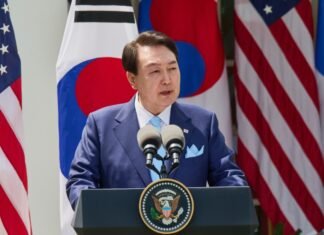UDMR Continues in Government: Kelemen Hunor Addresses Economic Concerns
The Union Democratic Magyars from Romania (UDMR) has confirmed its decision to remain part of the governing coalition. This announcement comes at a critical time as the nation grapples with significant economic challenges. Kelemen Hunor, the leader of UDMR, highlighted these pressing issues during recent statements, indicating that Romania currently faces the highest deficit in the region, exceeding 9.3%. Additionally, he pointed out that the country has the largest public debt in its vicinity.
Hunor’s remarks underscore deep-seated concerns regarding the financial health of the nation. With the deficit reaching such alarming levels, the implications for economic stability, public services, and social programs become increasingly concerning for citizens and policymakers alike. The UDMR’s commitment to remaining in government suggests a strategy to help navigate these turbulent economic waters, even as the coalition faces scrutiny.
The problematic state of public finances is not just a numerical issue; it translates into real repercussions for everyday Romanians. A high deficit often means that the government may need to implement austerity measures, which can affect public investment, social safety nets, and overall economic growth. In Hunor’s view, the UDMR’s role in the governing coalition is essential to address these deficits and take corrective measures to steer the country back on a sustainable path.
Amid discussions about the economy, Hunor emphasized the importance of a unified approach to address these challenges. He believes that collaboration among coalition partners is key to developing effective financial policies that can mitigate the ongoing issues. The UDMR’s participation will likely focus on crafting solutions tailored to the needs of minority communities while also considering the broader economic context.
Moreover, as the coalition works together to find viable solutions, the UDMR’s input will be crucial in advocating for investments in areas that promote economic development and job creation, particularly in regions with substantial Hungarian populations. This dual focus on minority interests and national economic health might present both opportunities and challenges for the coalition moving forward.
As the government seeks to stabilize the economic situation, Hungary’s role as a regional partner remains significant. The interconnectedness of economies in Central and Eastern Europe means that Romania must navigate its policies not only in relation to domestic concerns but also to broader regional dynamics.
In conclusion, the UDMR’s decision to remain in the governing coalition, as articulated by Kelemen Hunor, may provide both stability and a fresh perspective on resolving Romania’s pressing economic challenges. With a high deficit and public debt, proactive measures and a collaborative approach will be essential for ensuring the country’s financial sustainability. Public sentiment will hinge on the ability of the coalition to enact effective strategies and communicate the rationale behind tough economic decisions in the months ahead. As the situation evolves, the UDMR’s actions in government will undoubtedly be watched closely by both constituents and opponents alike.






